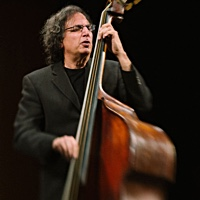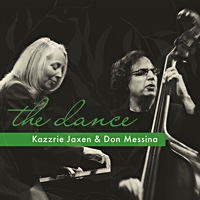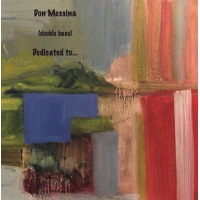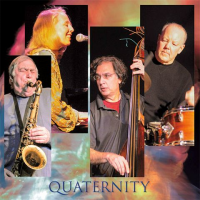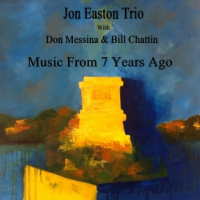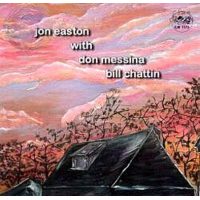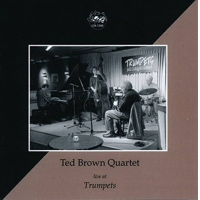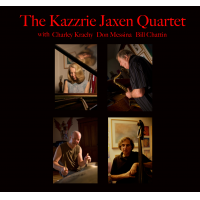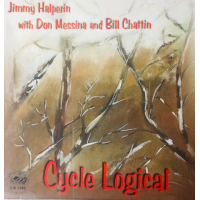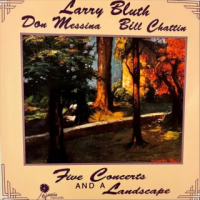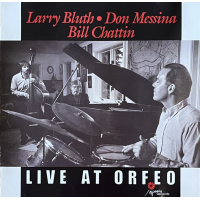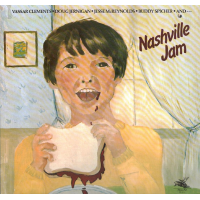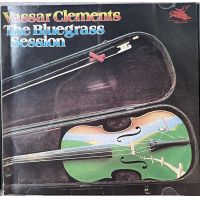Updated: February 25, 2025
I met Lennie Tristano in 1973, while accompanying a friend to his weekly lessons. I did this about a dozen times over a few months. I was 17, the same year I started to play the double bass and it was after I heard a recording of the Metronome All-Stars featuring Charlie Parker and Lennie that I decided I wanted to be a jazz bassist. Since then I have been a devoted admirer and fan of Lennie’s music and his teaching as well as the beautiful music of Bird, Prez, Billie Holiday, Sal Mosca, Bud Powell, Fats Navarro, Roy Eldridge, Warne Marsh, Lee Konitz, Louis Armstrong, Oscar Pettiford, Jimmy Blanton, Charlie Christian, Art Tatum, Django, Wes Montgomery, Max Roach, and Kenny Clarke. I spent the next 5 years traveling and playing music, ultimately realizing that I needed to study. In September of 1978 I called Lennie to take lessons. He told me he would get back to me; unfortunately, Lennie died weeks later in November, 1978.
Soon after that call I met some players who were studying with a teacher in New Jersey who was involved with the music of Tristano and Sal Mosca and they all raved about his playing and teaching. I started studying jazz improvisation with tenor saxophonist Fred Amend in 1978 for fourteen years. Fred, who at that time was a student of Sal Mosca, had a number of young players studying with him that sessioned regularly. I entered into a perfect music scene. Most of the musicians that I've played with then and today I met while studying with Fred. He helped me understand the concept of an improvised bass line whether soloing or accompanying; plus he shared his love of the great players of jazz and classical music with me, especially Lester Young, Charlie Parker, and Bach. I was soon introduced to Sal Mosca. Listening to Sal, and eventually sessioning regularly with Mosca changed every aspect of my appreciation for music. Sal's piano improvising and teaching, as well as his carefully measured words related to music gave me an even deeper understanding of what an improvised melodic line could and should be; the importance and necessity of steady time and swing; and how to use the colorful palette of harmony to develop and become your own player. Through Sal's influence I learnt that there is no limit to creativity on any instrument.
Since the early 1980s I have been part of many rhythm sections with drummer Bill Chattin. Bill and I were part of the Larry Bluth Trio for over 30 years. We played every Sunday morning, rarely missing a week, it was my church. We recorded three live CDs for Zinnia Records and one for the Fresh Sound Record label that was released in 2022. These recordings were awarded four-stars by Chris Albertson in Stereo Review; selected as “one of the best Jazz CDs of 1999” by Bob Blumenthal of the Boston Globe; received the 2000 IAJE Blue Chip Award for Outstanding Jazz Recording by Herb Wong; and given 4-1/2 stars by the All-Music Guide, Jazz Times, Down Beat, Wired, LA Jazz Scene, Cadence, All About Jazz, Jazz Weekly, and many others.
Read moreTags
All About Jazz Articles
Jimmy Halperin: High And Outside
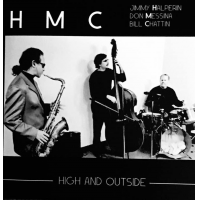
by Ken Hohman
Pianist Lennie Tristano's music was in many ways more complex than bebop, featuring a different harmonic language and driven by long, freely improvised melodic lines over a carefully modulated rhythm section. Tristano's disciple, saxophonist Lee Konitz, was the most creative interpreter of this approach and demonstrated its limitless possibilities over eight decades before his passing in 2020. The spirit of Tristano and Konitz is captured well in this live set, originally recorded in April of 2002 at Rutgers ...
Continue ReadingTed Brown Quartet: Just You Just Me
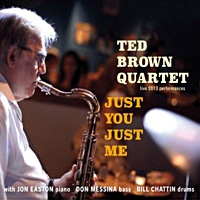
by Jack Kenny
Ted Brown's 2013 album, recorded at various locations in New York and New Jersey, is steeped in the traditions of both Lester Young and Lennie Tristano, but what emerges is distinctly his own. Born in 1927, Brown channels the inspirations of these jazz giants, yet asserts his own individuality in every phrase. The ghostly presences of Young and Tristano haunt the grooves, but Brown's interpretive voice remains unmistakable. Tristano's concept of improvisation--marked by avoidance of standard licks and ...
Continue ReadingRich Peare: Blues For Peter
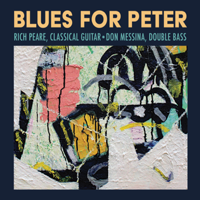
by Jack Kenny
There is a special kind of pleasure in sitting in a jazz club, listening to talented musicians use their skills to explore some of the finest melodies of the last sixty years. In their debut album, Blues for Peter, Rich Peare (classical guitar) and Don Messina (double bass) offer just that experience. The album features eight improvised tracks--seven standards and one blues--plucked on a nylon-stringed classical guitar and a gut-stringed double bass. Messina's connection to jazz is deep-rooted. ...
Continue ReadingLarry Bluth Trio: Never More Here

by Kyle Simpler
Many musicians work diligently to build a career for themselves. Although dedicated to music, these players also try to build a fanbase, book concerts, and score record deals. However, there are an equal number of performers who are driven more by creating music than making it in the music business. Unfortunately, many artists who fall into this second category often fail to get the recognition they deserve. Pianist Larry Bluth could easily fit into this category of talented musicians that ...
Continue ReadingSal Mosca: Thing-Ah-Majig
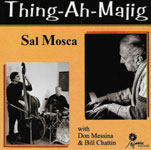
by Brandt Reiter
Often referred to as Lennie Tristano's prime pupil, 78-year-old Sal Mosca has spent the greater part of the last half-century teaching rather than performing or recording, so any new disc by the low-profile pianist is immediately something of an event. Thing-Ah-Majig, recorded in 2004 and especially noteworthy as Mosca's first trio recording since 1959, does not disappoint.The program is what you'd expect from a Tristano disciple: five warhorse standards (plus one Mosca original, the leisurely “Nowhere ), picked ...
Continue ReadingSal Mosca: Thing-Ah-Majig

by Derek Taylor
School spirit can sometimes be a liability in jazz, a genre where individuality remains a paramount attribute. Critics lumped drummer Shelly Manne in with the Cool clique early on, even though his flexibility in taste and technique embraced a host of styles from swing to hard bop to early free. Similarly, allegiance to one's mentors, while admirable, occasionally carries peripheral costs of association. Sal Mosca knows these predicaments all too well. As one of Lennie Tristano's most prodigious pupils, and ...
Continue ReadingBluth/Messina/Chattin: Formations
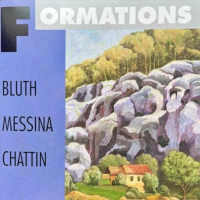
by AAJ Staff
The current standard for piano trio music was largely set in the '60s. Recordings by the Bill Evans Trio and the Wynton Kelly Trio, for example, established basic paradigms that have persisted until today. Today's popular trios led by young pianists such as Brad Mehldau and Jacky Terrason, for example, derive much of their style from this influential period.
Formations, a trio outing led by pianist Larry Bluth, falls in much the same category. It builds off jazz standards, either ...
Continue ReadingYou don’t very often get to hear an accomplished jazz duo on a nylon-stringed classical guitar—that’s Richard Peare—and a gut-stringed double bass—that’s Don Messina. On their new release, Blues for Peter, these two master improvisers, both of whom stand in the tradition of such folks as Lennie Tristano and Sal Mosca, among others, offer an old-school paean to melody and swing on seven standards and one original. Dedicated to the late Peter Prisco, an esteemed Staten Island guitarist and teacher with whom both Peare and Messina were connected, the album opens with a swinging version of “Strike Up the Band,” which sets the scene for what’s to come—good-time music whose inventive improvisational lines unpack the melodic and harmonic possibilities encapsulated in familiar tunes. Richard gets the lion’s share of the foreground, but Messina, whose swinging, irresistible pulse grounds the entire album, gets an expressive cameo on the original title track.

